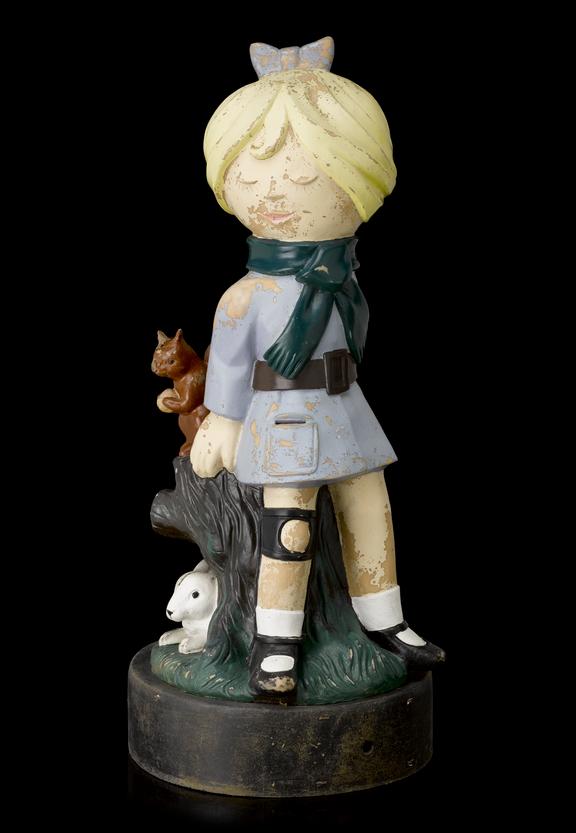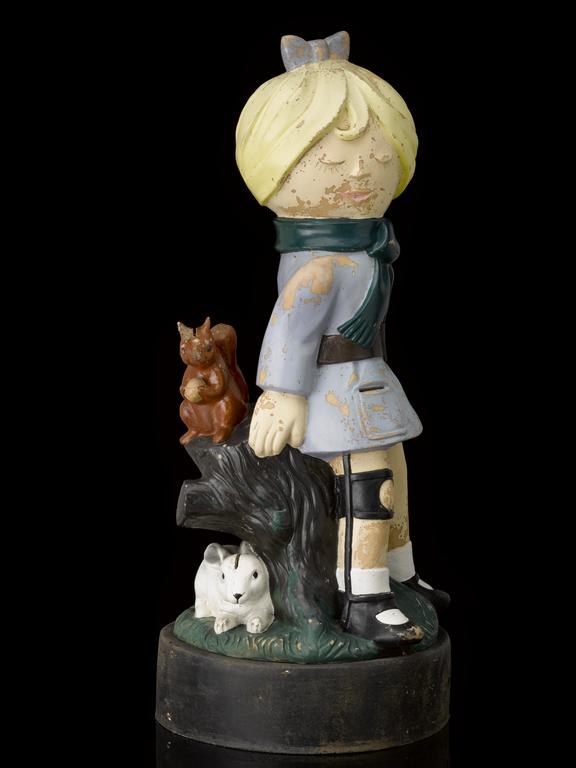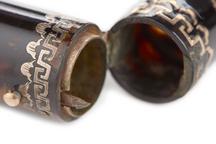
"Debra" collecting box
'Debra' charitable collecting box for the Spastics Society, later known as Scope, maker not marked, United Kingdom, 1970-1979
This collecting box would have stood outside a shop in the 1970s to raise money for the charity Scope. When the charity was formed in 1952, it was known as the National Society of Spastics. Begun by a group of parents of children with cerebral palsy, the charity was very successful. By 1957, it was one of the top six charities in Britain. In 1963, it merged with the British Council for the Welfare of Spastics to become the Spastics Society. Many local parent organisations were formed which were an important community for many families. However, the charity’s successful fundraising and marketing campaign often relied on the image of children with cerebral palsy as helpless. This was at odds with the charity’s ideal that everyone could be successful given the right support. In 1994, the charity changed their name to Scope, because the previous name had highlighted language that had become offensive and made people with cerebral palsy look like a uniform group rather than emphasising their individuality. The charity also now support disabled people more broadly, rather than just those with cerebral palsy.
Valerie Lang became the first woman with cerebral palsy to join the charity’s executive committee in 1979. As well as advocating for the name change, she successfully campaigned for these collection boxes to be removed. The boxes were found to not raise much money and Valerie felt that they made disabled people an object of pity. This did not fit the charity’s vision, then and now, of a society where disabled people enjoy equality and fairness.
- Measurements:
-
overall: 810 mm x 350 mm
- Materials:
- plastic (unidentified) and metal (unknown)
- Object Number:
- 2018-66/1
- type:
- collecting box




















